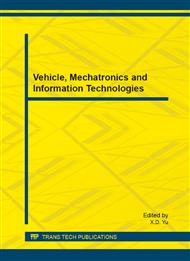p.2662
p.2667
p.2673
p.2677
p.2681
p.2687
p.2691
p.2695
p.2699
Continuous Probabilistic Reverse Skyline Monitoring over Uncertain Data Streams
Abstract:
Reverse skyline is useful for supporting many applications, such as marketing decision,environmental monitoring. Since the uncertainty of data is inherent in many scenarios, there is a needfor processing probabilistic reverse skyline queries. In this paper, we study the problem of efficientlyprocessing these queries on uncertain data streams. We first show the formal definitions of reverseskyline probability and probabilistic reverse skyline. Then we propose a new algorithm called CPRSto maintain the most recent N uncertain data elements and to process continuous queries on them.CPRS is based on R-tree, and efficient pruning techniques, one of which is based on a new structurenamed Characteristic Rectangle, are incorporated into it to handling the extra computing complexityarising from the uncertainty of data. Finally, extensive experiments demonstrate that our techniquesare very efficient in handling uncertain data streams.
Info:
Periodical:
Pages:
2681-2686
Citation:
Online since:
August 2013
Authors:
Price:
Сopyright:
© 2013 Trans Tech Publications Ltd. All Rights Reserved
Share:
Citation:


